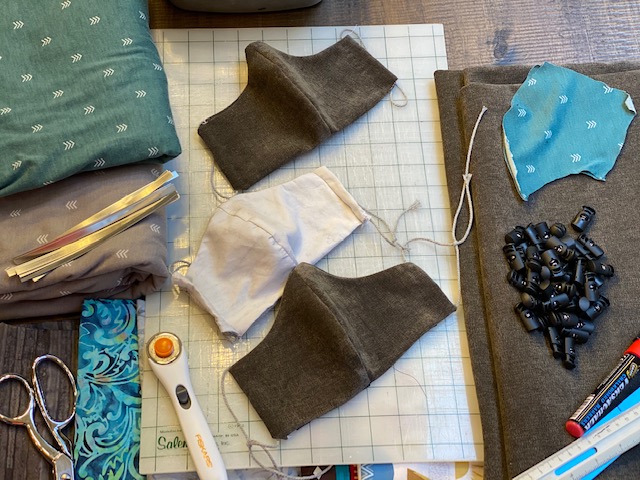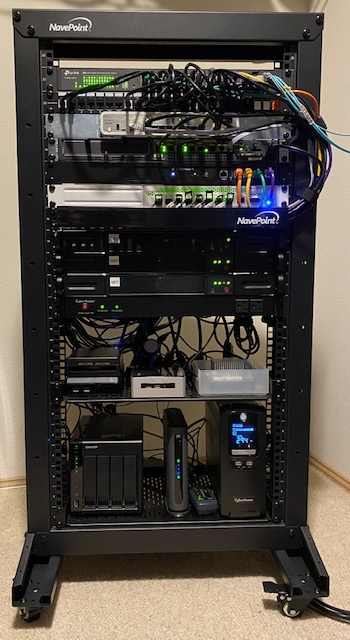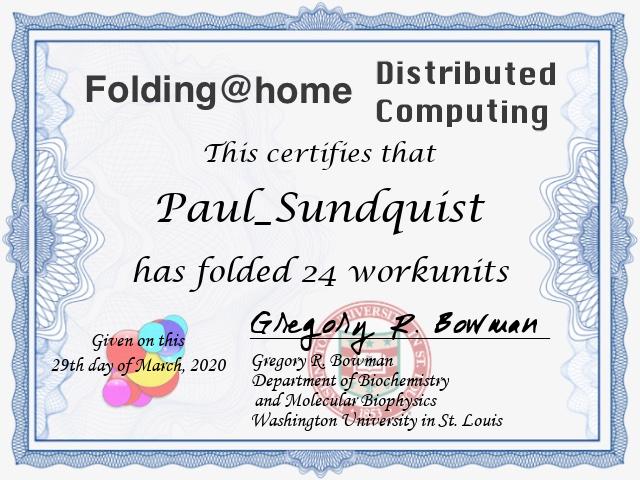The global pandemic crisis has quickly mobilized a new volunteer community at technology companies and beyond. This community is providing a vast amount of valuable computing resources to leading biomedical academic researchers. One of the reasons why researchers need resources is to learn how the coronavirus works. This knowledge can help the development vaccines and medicine to fight it.
I’ve been fortunate to receive help from countless individuals who contributed to building my talents throughout my life. I can’t sew masks like my wife Michelle is doing to help our front line heroes, but I’m contributing my time and talents to donate computer resources and get the word out.

Michelle Sundquist’s mask production for her niece and co-workers who are nursing assistants in Idaho
Folding@home is the largest volunteer project contributing unused processing power to biomedical researchers understanding human proteins. Technology for this project is similar to the popular seti@home project to search for alien life. Both of these project use unused processing power from anyone who installed their software. Currently the Folding@Home project is the largest supercomputer in the world.
Giving time
Technology companies have vast amount of computing resources in their data centers and many of their employees have home labs. These home labs are micro data centers purchased by employees to learn and gain experience with enterprise information technology software. Servers in corporate or micro data centers are sized for maximum demand and often have unused capacity.

Folding@home VMware fling
An ad-hoc team @ VMware came together to deploy Folding@home both in corporate data centers and employees home labs. This team quickly built and shipped a VMware virtual appliance fling to package and make it easy for anyone to deploy the software. Flings are “engineer pet projects” freely distributed by VMware to the public. Approval was received by Dr. Greg Bowman the Director of Folding@home for VMware to host and distribute the virtual appliance with their project. I learned about the fling through an internal Slack channel and quickly deployed it to my 3 servers on March 20th when it was released.

Future Technical Blog Posts
Negligible Impact: A future blog post will explain how distributed resource scheduler (DRS) enforces my policies to provide Folding@home only excess compute capacity while not degrading my preexisting workloads.
Sustainability: I’ll also describe the energy impact to my home lab by adding these compute intensive Folding@home workloads in a separate post. I’ve taken steps for my home lab to efficiently use electricity and make this project sustainable for me.
How you can help
Non-profit Grant from your employer: VMware like many other companies provide a service learning program benefit to their employees. A grant to the employees non-profit of choice is given for the hours spent volunteering in the community. I’m planning to utilize VMware’s program for my volunteer work on Folding@home. One of the options I’m considering to direct the service learning grant is the Folding@home team at Washington University School of Medicine in St. Louis.
Computer and Personal Time: VMware’s customers and many in the technology industry from the IT channel through the largest technology companies like IBM, Microsoft, Dell, Google, Apple, and Amazon already have started a response. CRN recently published an article on how the channel partners are jumping in to support the cause. Consider contributing your excess computing capacity from your laptop or your server farm by joining the effort already underway at your company. If you the first in your organization, deploy the Folding@home VMware virtual appliance fling or the original software directly from Folding@home.
team VMware Folding@home statistics